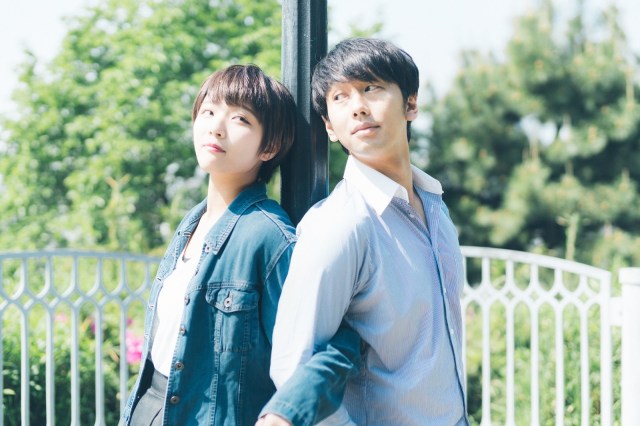
Right now, getting married in Japan means someone is changing their name.
Japan has adopted a lot Western wedding conventions, such as bridal gowns, exchanging rings, and taking honeymoons. But there’s one aspect in which Japan hasn’t followed suit: in Japan, couples aren’t allowed to keep their pre-marriage family names after tying the knot.
While this is often framed in discussions of Japanese society as “women must take their husband’s surname,” the actual requirement of the law is that both members of the union have the same family name, and there are cases of men instead taking their wife’s name when they get married, as SoraNews24’s own Mr. Sato did. However, in the vast majority of marriages it’s the wife who changes her name.
But while the law demands a shared surname, how do Japanese people themselves really feel about the subject? To try to find out, Waseda University professor and family law expert and Masayuki Tanamura and activist group Selective Married Couple Surname National Appeal Action conducted an online survey. 7,000 responses from people between the ages of 20 and 59 were collected, and 71 percent responded with “I don’t mind either way if other married couples have the same last name or different ones.”
The specification of “other married couples,” means that not everyone who responded that way necessarily wants two different surnames in their own marriage, but it does show strong support for giving people the freedom to make the choice for themselves. On the other side of the debate, only 14 percent of the respondents said “I want my spouse and I to have the same name, and other marred couples should have the same name too,” suggesting that even the remaining 15 percent of the respondents aren’t dead-set against couples with different surnames.
Sorting the responses by prefecture, the strongest support for allowing different names was found in Okinawa, where 77 percent of respondents were in favor of giving couples the option, followed by Aomori and Wakayama (tied at 75 percent). In fact, a majority of respondents for every prefecture supported letting couples have different surnames, with the lowest figure being Ehime’s 60 percent.
It’s worth taking into account that among working Japanese women who’ve gotten married and taken their husband’s name, it’s not unusual to continue using their maiden name in the office. Japanese business culture usually involves calling coworkers and colleagues by their surname, and women who opt for continuity even after getting married don’t become targets of criticism from people who insist they start using their new legal surname in meetings and emails.
▼ Just like how we didn’t all start calling Mr. Sato “Mr. Yamashina.”
Still, 94 respondents to the survey said they’ve given up on or postponed getting married to their partner because they don’t want to change their name, so no doubt they’re hoping for a change in the law.
Source: NHK News Web via Otakomu
Top image: Pakutaso
Insert images: Pakutaso, SoraNews24
● Want to hear about SoraNews24’s latest articles as soon as they’re published? Follow us on Facebook and Twitter!



 Should married couples in Japan be allowed to have different family names? Survey investigates
Should married couples in Japan be allowed to have different family names? Survey investigates Japan: one of the few countries in the world where married couples must have the same surname
Japan: one of the few countries in the world where married couples must have the same surname Four moments when Japan’s single men are glad they’re not married
Four moments when Japan’s single men are glad they’re not married How many married people with children in Japan admit to cheating on their spouse? Survey says…
How many married people with children in Japan admit to cheating on their spouse? Survey says… Survey shows how Japanese couples feel about spending so much time together sheltering in place
Survey shows how Japanese couples feel about spending so much time together sheltering in place Japan’s new difficult-to-drink-from beer glass protects your liver, but it’s a brutal experience
Japan’s new difficult-to-drink-from beer glass protects your liver, but it’s a brutal experience New Nintendo Lego kit is a beautiful piece of moving pixel art of Mario and Yoshi【Photos】
New Nintendo Lego kit is a beautiful piece of moving pixel art of Mario and Yoshi【Photos】 Come play hide-and-seek on a deserted Japanese island this August and November
Come play hide-and-seek on a deserted Japanese island this August and November How to order snacks on a Shinkansen bullet train in Japan
How to order snacks on a Shinkansen bullet train in Japan New samurai glasses are Japan’s latest weird must-have souvenir
New samurai glasses are Japan’s latest weird must-have souvenir Caffeinated ramen for gamers that you can eat with one hand going on sale in Japan
Caffeinated ramen for gamers that you can eat with one hand going on sale in Japan Turns out you can draw all four original starter Pokémon with just three colored pencils【Video】
Turns out you can draw all four original starter Pokémon with just three colored pencils【Video】 Nintendo history you can feel – Super NES, N64, and GameCube controllers become capsule toys
Nintendo history you can feel – Super NES, N64, and GameCube controllers become capsule toys Demon Slayer: Kimetsu no Yaiba gets new roller coaster attractions and food at Universal Studios Japan
Demon Slayer: Kimetsu no Yaiba gets new roller coaster attractions and food at Universal Studios Japan Sailor Moon celebrates 30 years with beautiful purse, accessory lines from Samantha Group【Pics】
Sailor Moon celebrates 30 years with beautiful purse, accessory lines from Samantha Group【Pics】 Hello, cosmetics! Clinique teams up with Hello Kitty this summer for first-time collaboration
Hello, cosmetics! Clinique teams up with Hello Kitty this summer for first-time collaboration “The most Delicious Cup Noodle in history” – Japan’s French Cup Noodle wins our heart【Taste test】
“The most Delicious Cup Noodle in history” – Japan’s French Cup Noodle wins our heart【Taste test】 Starbucks releases a cute Frappuccino and Unicorn Cake…but not in Japan
Starbucks releases a cute Frappuccino and Unicorn Cake…but not in Japan Kyoto Tower mascot termination reveals dark side behind cute Japanese characters
Kyoto Tower mascot termination reveals dark side behind cute Japanese characters McDonald’s Japan’s Soft Twist Tower: A phantom ice cream only sold at select branches
McDonald’s Japan’s Soft Twist Tower: A phantom ice cream only sold at select branches Yabai Ramen: What makes this Japanese ramen so dangerous?
Yabai Ramen: What makes this Japanese ramen so dangerous? Finally! Nintendo Japan expands Switch 8-bit controller sales to everybody, Online member or not
Finally! Nintendo Japan expands Switch 8-bit controller sales to everybody, Online member or not Japanese government wants to build luxury resorts in all national parks for foreign tourists
Japanese government wants to build luxury resorts in all national parks for foreign tourists To combat declining birth rate, Japan to begin offering “Breeding Visas” to foreigners
To combat declining birth rate, Japan to begin offering “Breeding Visas” to foreigners 10 things you should buy at 7-Eleven in Japan
10 things you should buy at 7-Eleven in Japan Studio Ghibli releases anime heroine cosplay dresses that are super comfy to wear
Studio Ghibli releases anime heroine cosplay dresses that are super comfy to wear Woman charged for driving suitcase without a license in Osaka
Woman charged for driving suitcase without a license in Osaka Studio Ghibli unveils My Neighbour Totoro miniature house model
Studio Ghibli unveils My Neighbour Totoro miniature house model Kyoto experiencing problems with foreign tourists not paying for bus fares, but not on purpose
Kyoto experiencing problems with foreign tourists not paying for bus fares, but not on purpose Fighting mild hunger with a Japanese soda that turns into jelly in the stomach【Taste test】
Fighting mild hunger with a Japanese soda that turns into jelly in the stomach【Taste test】 Studio Ghibli’s Howl’s Moving Castle tapestry unveiled in Japan for first time
Studio Ghibli’s Howl’s Moving Castle tapestry unveiled in Japan for first time McDonald’s new Happy Meals offer up cute and practical Sanrio lifestyle goods
McDonald’s new Happy Meals offer up cute and practical Sanrio lifestyle goods Sales of Japan’s most convenient train ticket/shopping payment cards suspended indefinitely
Sales of Japan’s most convenient train ticket/shopping payment cards suspended indefinitely Sold-out Studio Ghibli desktop humidifiers are back so Totoro can help you through the dry season
Sold-out Studio Ghibli desktop humidifiers are back so Totoro can help you through the dry season Japanese government to make first change to romanization spelling rules since the 1950s
Japanese government to make first change to romanization spelling rules since the 1950s Foreigner’s request for help in Tokyo makes us sad for the state of society
Foreigner’s request for help in Tokyo makes us sad for the state of society Ghibli founders Toshio Suzuki and Hayao Miyazaki contribute to Japanese whisky Totoro label design
Ghibli founders Toshio Suzuki and Hayao Miyazaki contribute to Japanese whisky Totoro label design Doraemon found buried at sea as scene from 1993 anime becomes real life【Photos】
Doraemon found buried at sea as scene from 1993 anime becomes real life【Photos】 Tokyo’s most famous Starbucks is closed
Tokyo’s most famous Starbucks is closed Princesses, fruits, and blacksmiths: Study reveals the 30 most unusual family names in Japan
Princesses, fruits, and blacksmiths: Study reveals the 30 most unusual family names in Japan Japanese women sound off on the line separating a male friend and a boyfriend
Japanese women sound off on the line separating a male friend and a boyfriend Over half of Japanese people in survey only dated three or fewer people before getting married
Over half of Japanese people in survey only dated three or fewer people before getting married Nearly half of survey respondents in Japan feel healthier since before COVID-19
Nearly half of survey respondents in Japan feel healthier since before COVID-19 Is the ideal spouse someone who’s your best friend or your war buddy? Japanese singles sound off
Is the ideal spouse someone who’s your best friend or your war buddy? Japanese singles sound off Survey reveals that secretaries in Japan say ‘no’ to these types of husband
Survey reveals that secretaries in Japan say ‘no’ to these types of husband Survey reveals 55 percent of women in Japan wouldn’t marry a divorced man
Survey reveals 55 percent of women in Japan wouldn’t marry a divorced man Rate of young Japanese people who want to get married someday drops to lowest ever in survey
Rate of young Japanese people who want to get married someday drops to lowest ever in survey Do Japanese superfans really want to marry their favorite idol?【Survey】
Do Japanese superfans really want to marry their favorite idol?【Survey】 Japanese guys way more enthusiastic about moving in with girlfriends than vice-versa, survey says
Japanese guys way more enthusiastic about moving in with girlfriends than vice-versa, survey says Survey reveals Japan’s Generation Z dresses for social media, not for self-expression
Survey reveals Japan’s Generation Z dresses for social media, not for self-expression Roughly 40 percent of single Japanese men in their 20s have never been on a date, survey says
Roughly 40 percent of single Japanese men in their 20s have never been on a date, survey says “Family name researcher” discovers the most common full name in Japan
“Family name researcher” discovers the most common full name in Japan Survey reveals the top reasons why married Japanese people don’t want to go home during Obon
Survey reveals the top reasons why married Japanese people don’t want to go home during Obon What’s the minimum amount of money Japanese women want their husbands to earn? Survey investigates
What’s the minimum amount of money Japanese women want their husbands to earn? Survey investigates Fewer Japanese people got married last year than any time since the end of World War II
Fewer Japanese people got married last year than any time since the end of World War II Rub-a-dub-dub and relax in a tub: Survey reveals wintertime bathing habits across Japan
Rub-a-dub-dub and relax in a tub: Survey reveals wintertime bathing habits across Japan
Leave a Reply